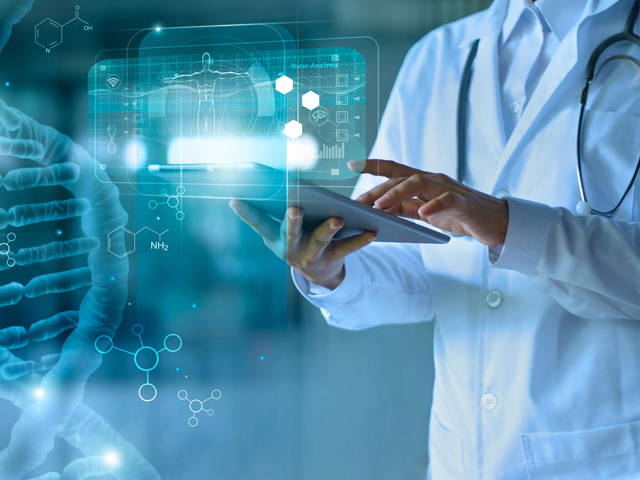
10 Possible Uses of Artificial Intelligence in Medicine
Every single medical process is already full of latest improvements and indeed technology is everywhere. However, we now have a real game changer: Artificial Intelligence (AI). What makes AI different is that it can automatically ‘learn, think and decide’ on behalf of human beings and doctors are not excluded. It’s already being experimentally used in several processes like clinical decision support and medical image analysis. But in the very near future it will be much more widely used and here are the 10 possible uses artificial intelligence in medicine.
1- Diagnosing
Get ready to tell your complaints and show your scans to computers instead of doctors! By analyzing verbal expressions, scan images, tests and other medical data, AI systems can detect signs of disease. In this way, physicians can pinpoint problems in early stages, start treatment instantly and manage rehabilitation process effectively.
2- Patient care
AI systems can also care for patients. For example, by monitoring an inpatient’s body temperature and pulse rate 7/24, they can help doctors more easily track his/her condition minute by minute. Therefore, artificial intelligence systems have the potential to be your future nurses.
3- Medication
AI systems can recommend medicines that can be used to treat a patient. For example, by analyzing the medications a doctor prescribes to a patient, it can recommend the most appropriate drug option. In this way, doctors can choose the most effective drugs to treat the patient. By examining the effects and side effects of drugs, AI systems can recommend the most appropriate drug options.
4- Surgical planning
Artificial intelligence systems can also be used in planning surgeries. When a surgeon is selecting the instruments to be used during surgery, an AI system can recommend the most suitable instrument set options. Procedures can be performed more effectively and efficiently.
5- Medical data analysis
When used in healthcare, AI systems can also be used to analyze medical data. For example, analyzing a patient’s medical history and findings can help to better understand the patient’s condition. In this way, doctors can better monitor the disease process and change treatment options when necessary.
6- Disease monitoring
AI systems can also keep track of a patient’s disease process. The doctor can monitor a patient’s treatment process and evaluate the effectiveness of the treatment, and therefore can better manage the treatment process and better track the disease process.
7- Evaluating treatment options
Deciding on treatment options is a critical process for physicians and AI systems can also be used to evaluate possible opportunities. For example, by examining the treatment options a doctor gives a patient, AI can recommend the most effective choice.
8- Medical records management
When used in healthcare, AI systems can also support medical records management. For example, by collecting a patient’s medical records, it can help doctors access them more easily. In this way, doctors can better understand their patients’ past medical conditions and determine the necessary treatment options. By collecting data that can be used in medical records management, AI systems can help doctors manage records more efficiently.
9- Patient counseling
When used in healthcare, AI systems can provide counseling to patients by answering their questions. For example, when a patient wants to get information on a health topic, an AI system can provide information on this topic. In this way, patients can increase their health knowledge and better protect their health. AI systems can use medical data and health information to answer patients’ questions.
10- Epidemiological monitoring
Remember the first days of Covid 19 pandemic. The whole world was confused with dozens of unclassified and unverified data. AI systems can also support epidemiological monitoring worldwide. For example, by tracking the spread of an epidemic in a region, it can help health authorities prevent the spread. In this way, outbreaks can be detected very fast and prevention efforts can be carried out more instantly.

